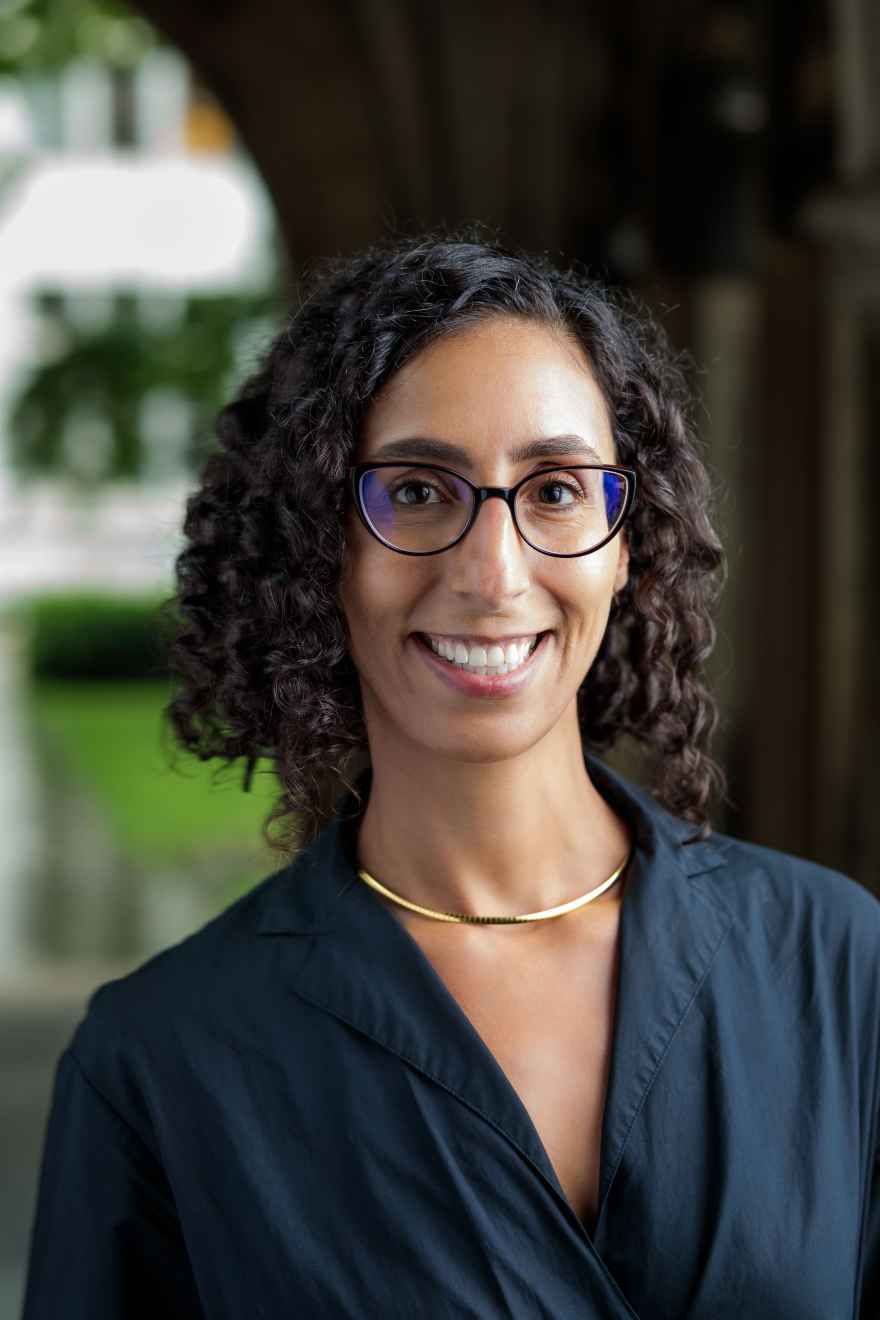Humanities Scholar Hoda El Shakry Receives the Prestigious MLA Scaglione Prize

By Sara Patterson
Many non-Muslims know very little about the Qurʾan. Pervasive Islamophobia—particularly in the post 9/11 era—has even led some to mistakenly view the Qurʾan as a trigger for acts of terrorism. Hoda El Shakry’s book The Literary Qurʾan: Narrative Ethics in the Maghreb (Fordham University Press, 2019) seeks to upend that perspective by demonstrating how the Qurʾan simultaneously models and teaches critical reading practices.
To recognize her efforts to change this paradigm, El Shakry received the Modern Language Association’s Aldo and Jeanne Scaglione Prize for Comparative Literary Studies on Jan. 9 for The Literary Qurʾan. “El Shakry shows that the Qurʾan has been an endlessly suggestive model for interpretation for writers across the Maghreb’s linguistic divides,” wrote members of the MLA Selection Committee about her book.
The study is deeply rooted in North African ethno-linguistic, cultural, and religious knowledge practices, which look beyond Euro-American canons and into authors from the Maghreb, which includes Algeria, Morocco, and Tunisia. According to El Shakry, The Literary Qurʾan challenges the secularizing tendencies of contemporary literary methodologies by theorizing the Qurʾan as a literary exemplar and intertext.
“Hoda is an exciting scholar whose work is an important bridge between our Department of Comparative Literature and the Divinity School,” said Anne Walters Robertson, the Dean of Division of the Humanities and the Claire Dux Swift Distinguished Service Professor in the Department of Music. “This connection will more broadly benefit many of our scholars of Western and Middle Eastern literatures and religions moving forward.”
El Shakry came to UChicago in 2019 from Pennsylvania State University, attracted by the university’s interdisciplinary orientation, collaborative research, and teaching opportunities. She also enjoys the curricular structure of UChicago, which allows her to teach smaller seminars that align more directly with her research interests.
“Hoda draws on the Qurʾan to model new epistemologies for reading and thinking Arabophone and Francophone literature,” said Leah Feldman, director of graduate studies and assistant professor in the Department of Comparative Literature.
Her interest in the Qurʾan began in Cairo when El Shakry took Qurʾanic lessons to supplement the regular curriculum found at her post-colonial British school. Not only did she learn to memorize and recite portions of the Qurʾan, but El Shakry’s lessons also integrated Qurʾanic methods of elocution, hymnody, Islamic history, and exegetical interpretations of the text. Several years later, as an undergraduate student at Rutgers, she began reading literature from the Maghreb and realized that many authors integrated the Qurʾan into their novels. That realization launched her fascination with the connections between literary and religious works.
“We recognized the impact of her scholarship in expanding a longstanding scholarly conversation about the relationship and the continuity between literature and religious texts,” said Na’ama Rokem, associate professor in the Department of Near Eastern Languages and Civilizations. “Historically this conversation has centered on the Bible, and Hoda's work on the Qurʾan opens a whole new field and new possibilities for other scholars.”
In 2019, UChicago faculty members Françoise Meltzer, then chair of Comparative Literature, and Rokem expected that El Shakry would push the field of comparative literature forward. El Shakry's hire was part of a larger cluster of hires in several Humanities Departments, which have made the University of Chicago one of the most exciting and attractive institutions for students of modern Arabic literature.
Her UChicago colleagues marvel at the young scholar’s maturity in research, service, and teaching. During the Fall Quarter, El Shakry assisted her colleagues, Mark Payne and Feldman, to develop and launch a new mentoring process for graduate students.
“Hoda is well-informed about every aspect of institutional life and really fun to work with, as well as being an exceptional, wide-ranging researcher,” said Payne, the chair of Comparative Literature at UChicago. “She has expanded the global range and thematic strengths of our program in really exciting ways.”
Comparative literature is moving away from European literature and toward authors writing in Arabic, Chinese, and African languages. “Times have changed in comparative literature, and it has become more political, philosophical, and non-European based,” said Meltzer, the Edward Carson Weller Distinguished Service Professor in the Department of Comparative Literature and Divinity School and the College. “Hoda’s scholarship reflects these changes, exploring how Arabic and Francophone literature draw inspiration from the Qurʾan within a broad cultural framework.”
Currently, El Shakry has a second book project in the works that aggregates and theorizes 20th-century Arabic, Francophone, and bilingual cultural journals from Algeria, Morocco, and Tunisia. Building on The Literary Qurʾan, it examines how the serialization of journals fosters cultural knowledge practices at the intersection of literature and ethics.
On the horizon, she is also working on a study of speculative and science fiction from the Middle East and North Africa. “I find that speculative fiction can be a generative tool for learning to imagine other futures and ways of being in the world,” El Shakry said.
This effort continues how El Shakry is advancing different perspectives and ways of seeing.